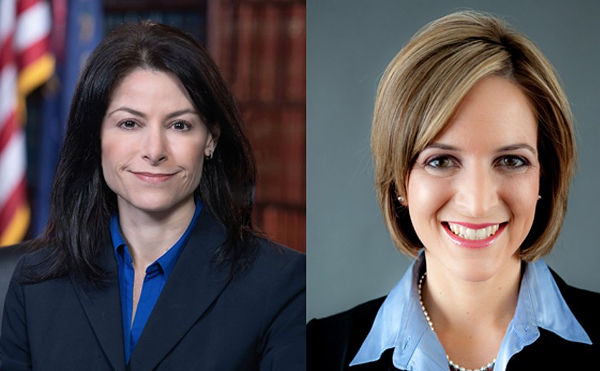Families of wrongfully convicted left without hope as Duggan dodges responsibility
The mayor's spokesman lied about laws protecting prosecutor files

Audio By Carbonatix
[
{
"name": "GPT - Leaderboard - Inline - Content",
"component": "35519556",
"insertPoint": "5th",
"startingPoint": "3",
"requiredCountToDisplay": "3",
"maxInsertions": 100,
"adList": [
{
"adPreset": "LeaderboardInline"
}
]
}
]

Mayor Mike Duggan continues to distance himself from allegations that his office oversaw the destruction of critical prosecutorial files during his tenure as Wayne County prosecutor, despite mounting evidence and growing calls for accountability.
The controversy stems from accusations that Duggan, who served as prosecutor from 2001 to 2004, presided over the purge of records now deemed essential by families of incarcerated individuals seeking to prove their innocence. Those families are calling for a meeting with Duggan to address the issue, which has left many without the means to obtain documentation crucial to their cases.
Mark Craighead, who was exonerated after spending years in prison for a crime he didn’t commit, has been one of the most vocal advocates for transparency. Craighead expressed frustration with Duggan’s recent denials.
“For the mayor to act like this didn’t happen under his watch is not only disappointing but disrespectful to the people still fighting for justice,” he said. “I’m calling on Duggan to meet with us, the families, and the people impacted by this. We deserve answers.”
Duggan’s spokesman, John Roach, has fueled the controversy by offering misleading statements to The Detroit News. Roach claimed that the state’s current records retention law did not exist at the time of the purge. While that’s true, it’s disingenuous because two other state laws required the retention of records.
It’s uncertain why The Detroit News didn’t attempt to verify that information before parroting a bureaucrat eager to defend his boss.
"Mayor Duggan never heard any suggestion from any prosecutor at the time, nor in the 20 years since, that the career prosecutor team handling that project ever violated the Michigan Records Retention Act or any other law," Roach told The Detroit News. "Apparently a recent media report claimed the prosecutors violated a state records retention schedule of 50 years. In fact, the 50 year retention requirement was not first enacted into state law until 2007, well after the event.”
However, this assertion is demonstrably false or reflects a misunderstanding of the law. Multiple statutes predating 2007 required the preservation of prosecutorial records. Legal experts and records management specialists point to at least two state laws that mandated the retention of files for extended periods, regardless of the conditions under which the purge occurred.
Nevertheless, Roach admitted some records were destroyed, saying that severe roof damage at a county-managed warehouse housing the files forced a quick decision.
According to Roach, “A team of career prosecutors who were most familiar with the files and with Michigan’s Records Retention Act developed a triage process, keeping those files that were needed or were legally required to be kept and disposing of the others. They did this as the County simultaneously attempted to set up alternative warehouse space before a catastrophic loss of files occurred."
Critics argue this explanation is insufficient.
“The law is clear on records retention,” a former Wayne County prosecutor familiar with the policies in place at the time tells Metro Times. “Even in the event of water damage or a move, there are protocols to protect those records. What happened here was not lawful, and it’s appalling to see officials attempt to rewrite history.”
Duggan’s explanation also falls short. Every record prior to 1995 was destroyed, creating a staggering obstacle for wrongfully convicted inmates seeking to prove their innocence.
Compounding the issue is Attorney General Dana Nessel’s reluctance to investigate. Despite evidence that the destruction of records violated state law, Nessel, a Democrat, has taken no action, leaving families and advocates in limbo.
"This lack of accountability from top to bottom is unacceptable,” Craighead said. “If the attorney general won’t act, where does that leave us?”
The growing calls for a meeting with Duggan reflect the frustration of families who feel abandoned by the legal system.
“These are more than just files,” said Craighead. “They represent lives, families, and futures. Duggan needs to own up to what happened and work with us to fix it.”
While Duggan’s office continues to deny wrongdoing, the evidence paints a different picture — one of a calculated effort to deflect blame and minimize the fallout. For the families still searching for justice, this is far from over.
Meanwhile, Duggan is running for governor as an independent, and the record purge could become a liability.Neither Duggan nor Roach would comment for this story.






